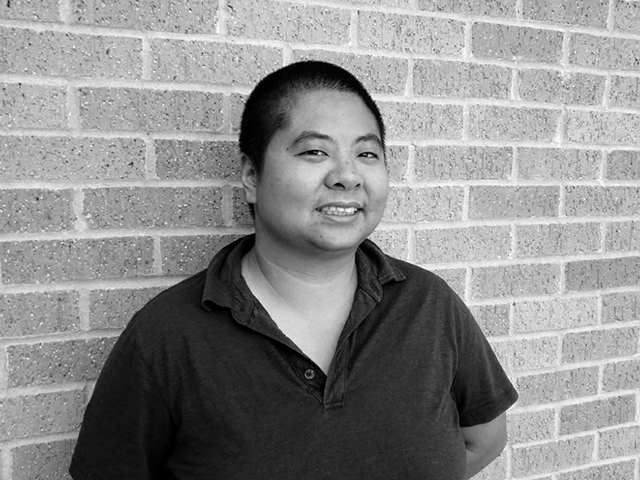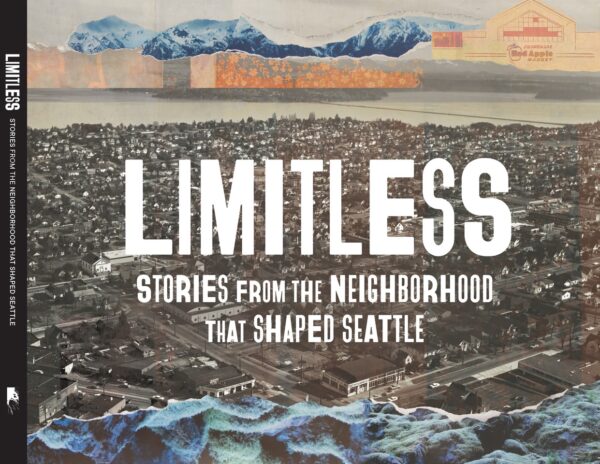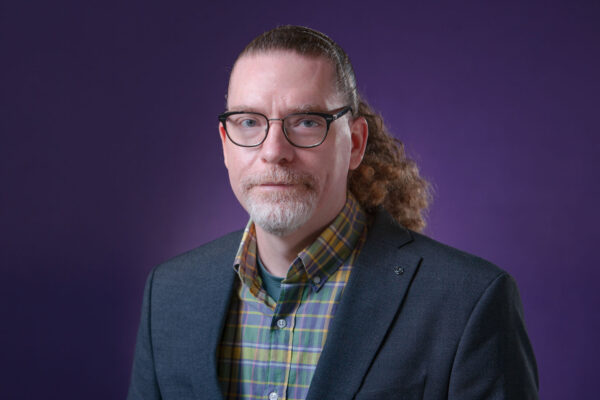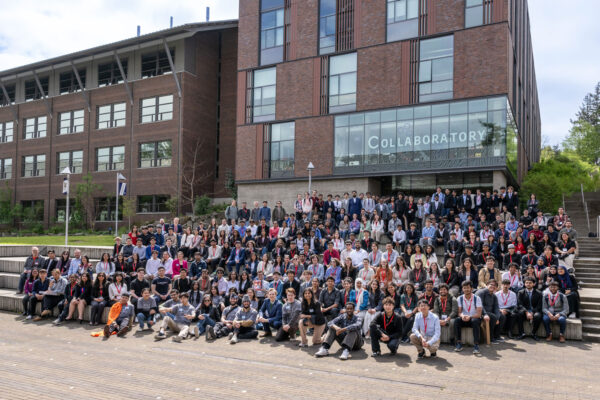By: Dr. Ching-In Chen
What If?
I ask questions. I always wanted to know, What if?
My mother — tightlipped dispenser of need-to-know
information — would answer, I have no idea. I never asked.
My father would reply without a beat, smoothly filling in
the spaces he didn’t know with what he imagined as the correct answer.
My partner now often replies, I don’t want to speculate.
~

As a young child, I speculated as a survival mechanism. I learned to keep myself company by reading, reminding myself other worlds existed outside of the ones I currently inhabited.
My tight-knit immigrant home life was caring but also full of high dreams and expectations carried across the ocean which often felt not mine.
The hostile school life where my peers often let me know that I was wrong. Wrong clothes, wrong size, wrong pronunciation, wrong body, wrong color.
When I was having a hard time, I dreamt of other stories I could step into. What if there was a place where I was not the wrong thing?
~
When I was 16 years old, my guidance counselor pulled me aside and told me about the Conference for Asian Pacific American youth, a first-ever statewide gathering of Asian American youth organized by Asian American youth and encouraged me to attend. At first, I was overwhelmed to have conversations that I wasn’t having in my school or at home. Navigating cross-cultural and generational conflict within families, cultural identity, combating stereotypes and telling our own stories.
As I settled in, I experienced something that I have since come to recognize as a fear of reflection. I was so used to not fitting in and seeing myself reflected in conversations around me (in school and in the larger culture) that it felt scary to see someone looking back at me in the spotlight and reflecting resonance or recognition.
I learned in that space that sharing our stories with each other was a vehicle for vulnerability and connection and a way to tell a story about myself that I couldn’t tell in school or at home. What if another kind of connection was possible?
~
Years later, I spent the early years of my Ph.D. program busing from Milwaukee to the state capitol to protest Scott Walker’s dismantling of unions in Wisconsin. We were exhausted and demoralized from constant rallies which put us in a defensive position and seemed to have little impact. I started strategizing with peers about other ways to respond and to take inspiration from other creative community organizers before us. I joined an activist street band — the Milwaukee Molotov Marchers — that performed music and creative chants to keep spirits going when we had to sit outside or march for long periods of time. We learned ways to change the narrative in the moment by de-escalating a tense situation or amplifying the mood of the crowd. What else was possible if we weren’t as focused on responding?
~
As a young community organizer, I witnessed elders in Oakland Chinatown who refused to leave their homes despite eviction. They channeled the power of their stories through testimony, moving others (including me) to act. Through community storytellers (and stories documented in Curtis Choy’s documentary “The Fall of the I-Hotel” as well as countless creative works that followed, including Karen Tei Yamashita’s “I Hotel” and Al Robles’ poetry), I learned from the powerful and heartbreaking example of the 1970s organizing against the eviction of the tenants of the International Hotel, a low-income single room-occupancy residential hotel which housed mostly Filipino and Chinese seniors in what was then San Francisco’s Manilatown. More than 20 years later, I walked by the site of the building each day on my way to my nonprofit job in San Francisco Chinatown. The building had been torn down and the site left empty. Each day, I wondered, what else could grow in that space?
~
At the University of Washington Bothell, I teach creative writing. As a young person, I loved stories but didn’t think of myself as a writer. I never thought that making a life centered around storytelling was possible, but I have surprised myself by landing here on this path. During this last year of pandemic, when I have spent most of my days in front of a small screen in a small room, I have been surprised by these worlds which have kept me company, raising more questions to explore.
Dr. Ching-In Chen is an assistant professor in the School of Interdisciplinary of Arts and Sciences and teaches in the MFA program in Creative Writing and Poetics. They are the author of “The Heart’s Traffic” and “recombinant” (recipient of the 2018 Lambda Literary Award for Transgender Poetry) as well as the chapbooks “how to make black paper sing” and “Kundiman for Kin :: Information Retrieval for Monsters” (finalist for the Leslie Scalapino Award). A co-editor of “The Revolution Starts at Home: Confronting Intimate Violence Within Activist,” they have worked in Asian American communities in San Francisco, Oakland, Riverside, Boston, Milwaukee and Houston.


